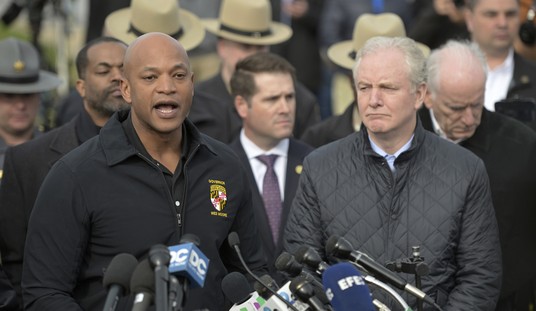Abraham Lincoln once said in his 1852 eulogy of the Father of the Whig Party, Henry Clay, that in America, “the man who is of neither party, is not—cannot be of any consequence.”
However, in 1855 when Lincoln was asked in by his friend Joshua Speed what party he belonged to, Lincoln said, according to his famous biographer David Herbert Donald, “That is a disputed point. I think I am a Whig, but others say there are no Whigs, and that I am an abolitionist.”
After leaving office in 1849, former Congressman Abraham Lincoln disengaged from politics. He mostly stood on the sidelines as the Whig Party quickly dissolved after the Compromise of 1850.
In 1855, just eight years after a Whig had been elected president and three years after another Whig, Winfield Scott, had waged a valueless presidential campaign in defeat to political lightweight, Democrat Franklin Pierce, the Illinois Whig Party was moribund. Democrats, led by the “Little Giant” Stephen A. Douglas, controlled Illinois at every level.
Lincoln met with other pro-liberty, anti-slavery advocates in Bloomington, Illinois and sparked the birth of the Republican Party in the state.
Lincoln took part in creating a platform that both downplayed the demands by radical abolitionists, but also maintained that Congress could prevent the extension of slavery to the territories. Lincoln made a grand address during the conference standing for the principles of this new-found coalition to oppose the “slave power” and those in the Democratic Party who no longer saw slavery as a necessary evil, but as a “positive good.” This coalition would include former Whigs, Democrats, Know Nothings and Liberty Party adherents.
Lincoln and other members of the Republican Party were able to stand united on fundamental principles of liberty, natural law and the nature of the union. By understanding the changing nature of politics and the most critical issues at that time, the Republican Party quickly rose from the ashes of a diverse set of adherents.
This new Republican Party would not just stand for compromise, as the Whigs had done in the early 1850’s, but would boldly declare their beliefs that were best articulated in the Lincoln-Douglas debates during the Illinois Senate race of 1858. Lincoln lost the race, but by standing for a consistent set of values that spoke to the heart of the nation’s concerns he made future victory possible.
Republicans in the late 1850’s understood that the emphasis on issues like national banking and tariffs were of an earlier era, and that most Americans were sensing a new challenge to the nature of the union and the preservation of liberty. By focusing and standing on the right side of an issue that defined a generation, Republicans revived a moribund Whiggism and gave it new legs.
Lincoln and other Republican Party leaders effectively dissolved the glue that held the juggernaut Democratic Party together and paved the way for both the successful Republican takeover of Illinois and Lincoln’s presidential election in 1860.
Modern-day Republicans in California, and throughout the nation, can learn from Lincoln’s success and apply it to today’s circumstances.
The most recent California GOP summit contained powerful rhetoric and a number of true conservative champions in its midst, such as former Orange County California Congressman Chuck DeVore, who is now, fittingly enough, living in Texas like many other ex-Californians. But the party itself has mainly fallen flat over the last several decades, leaving the state in dire need of a critical counter-narrative to the Leftist ideas that have run rampant.
At the summit, Karl Rove called for Republicans to, “Get back in the game and fight,” but this statement both underestimates the commitment of conservatives in the state and badly misdiagnoses the problem with the California Republican Party. It is difficult for conservatives to “get out and fight” if there is simply nothing to fight for.
Although the Democratic Party has an absolute hold on California politics, Party registration is incredibly low. Only 44 percent of voters are registered as Democrats and an appalling 30 percent as Republicans. A massive 20 percent are not affiliated with any party. These numbers are partially a product of voting rules in the state, and partly a problem of voter apathy.
The Republican Party in California lost its soul when it picked Arnold Schwarzenegger instead of Rep. Tom McClintock, the real conservative, to run against Governor Gray Davis in the 2003 recall election. At the time it seemed like the pragmatic and “safe” choice.
Once the luster of Schwarzenegger’s star power faded, his support and conservatism faded along with it. After failing to pass a number of propositions that would have curbed the overwhelming power of unions in the state, Schwarzenegger tacked to the left, passing a huge cap and trade bill and tax increases. His agenda was barely distinguishable from current Democratic Gov. Jerry Brown.
Although the GOP establishment at the California convention played up the need to bring in more ethnic diversity to the party and reaching out to women, that alone will not move the needle on the state’s political spectrum. The GOP ran two women at the top of the ticket in 2010 and both failed even in that Republican wave year.
The highest ranking Hispanic Republican in the state, former Lt. Governor Abel Maldonado, is a moderate who backed Schwarzenegger’s tax increases and lost his most recent congressional election.
Most Republican voters only remember Maldonado for casting the deciding vote for Gov. Schwarzenegger’s $13 billion tax hike. Maldonado mulls a run in the next gubernatorial election against Brown. Does Maldonado sound like someone conservatives want to get out and “fight for”?
Their candidates being neither socially nor fiscally conservative, California Republicans have been given few options to be excited about or even care for.
The California GOP needs to adopt a more aggressive conservatism based on libertarian and Tea Party ideals of strictly limited government and civil liberties in the similar vein of Sen. Rand Paul’s now famous filibuster. Californians who still believe in any kind of individual liberty, including many who consider themselves liberals, will have to at least listen to what Republicans with a libertarian bent have to say.
A candidate like former New Mexico Gov. Gary Johnson would have a fighting chance in a state that is certainly trending libertarian in its social policies and also constantly teetering on the edge of financial collapse, despite the Democratic hurrahs about a balanced budged based on faulty math.
This will count for a whole lot more in the long run, even in defeat, than the bland “me too” Republicanism of recent GOP Governor Arnold Schwarzenegger and gubernatorial candidate Meg Whitman.
This is precisely the game change that the Tea Party accomplished for Republicans in 2010. But California didn’t take part in the Tea Party wave, instead opting for a couple of moderates at the top of state-wide tickets. The true conservative, Chuck Devore, was chucked aside in the GOP senate primary in favor of moderate Carly Fiorina.
Conservatives should still attempt to check the excesses of some branches of libertarianism. Examples include opposing unconstitutional schemes like nullification and secession and purist open-border policies. And certainly, what works in California doesn’t necessarily translate to the national level as major disagreements about foreign policy are bound to crop up. But for the most part it is time for the California GOP to fully embrace the “leave me alone” coalition.
In California, a party more strictly focused on limiting government and avoidance of meddling in the lives of individuals would snap the Republican malaise. Just look at how revitalized conservatives were after Sen. Paul’s speech, a fact completely lost on old guard Republicans like Arizona Sen. John McCain and South Carolina Sen. Lindsey Graham.
The Republican Party won’t totally disappear like the Whigs did in the 1850’s; electoral rules are such today that the disappearance of one of the two major parties is all but impossible. Nevertheless, the party can adopt reformulated values and gain new life.
California Republicans need to take a Lincoln in ’58 and Barry Goldwater in ’64 strategy if they want to change the party’s fortunes. No more pale pastels, it’s time for bold colors.








Join the conversation as a VIP Member